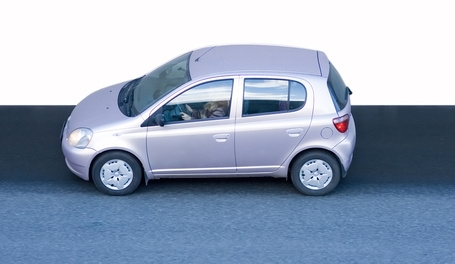
High gasoline prices and concerns over pollution and climate change combine to make fuel-efficient cars more attractive for buyers. Smart car consumers balance their transportation needs with fuel efficiency to determine the smallest and most efficient vehicle that will still do what is needed. Buying a vehicle that is far larger than is needed is a good way to spend money unnecessarily.
You know the Smart Car: It's that miniscule vehicle that people find funny looking, but the driver is smiling because he's getting 41 miles per gallon on the highway. Smart Cars have three cylinders, meaning that they're not so great in the power department, but for commuting and around-town use, they are probably the most efficient, commercially-available option today. They're also very easy to park.
The Toyota Prius is a fairly pricey hybrid car. Hybrid means that it runs on both gasoline and electricity. When moving at slow speeds in the city, or when stopped in traffic or at traffic lights, the Prius' gasoline engine doesn't engage at all. Then, when speeding up on highways, it uses the gasoline engine, which helps to recharge the electric batteries. The average mileage of a Prius in ideal conditions is about 50 miles per gallon.
When people think "efficiency," a Ford Ranger Pickup may not be the first thing to come to mind. But, a Ford Ranger 2-wheel-drive pickup can get 22 miles per gallon in the city and 27 miles per gallon on the highway. It's not the most efficient vehicle on the road by any means, but it's a pickup truck with the capacity to haul sizable loads, while still getting reasonable mileage.
Like the Ford Ranger Pickup, the Chevy Silverado isn't associated with "efficient," especially when considering its 8-cylinder engine. However, it also has a battery bank; it's a hybrid, and gets an average fuel mileage of 22 miles per gallon. If in need to move loads, a Smart Car won't fit the bill. So, if in need of a truck, an efficient one will save money and reduce the amount of pollution.